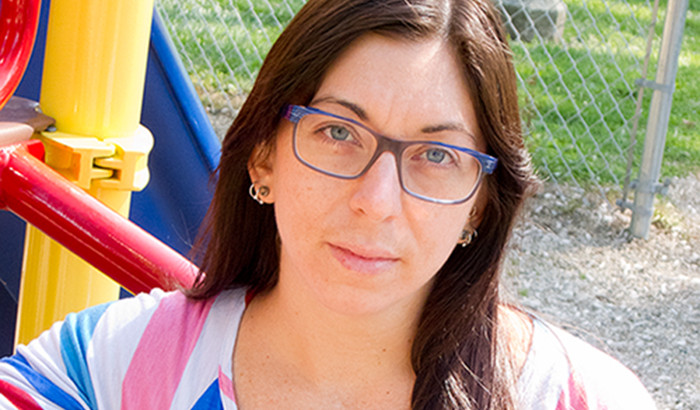Tina Ziemek completed her Ph.D. in the School of Computing at the University of Utah, arriving in Utah from Colorado where she completed her M.S. in computer science from Colorado School of Mines. Her research spans computer graphics, visual perception, and spatial thinking. Building on her technical and startup experience, Tina has started her own game studio — Last of Five — and she recently sat down with the Lassonde Entrepreneur Institute to talk about her new startup, which is currently incubating at FoundryUtah. We’ve pulled out some highlights to share with you and will publish the video and an interview transcript in a few weeks.
Tell us a little bit about Last of Five.
Last of Five is a digital play studio dedicated to helping children discover and embrace their innate desire to learn and be curious. Miramonte Park, our interactive world, brings together cohesive content, creation, contribution and compassion. We provide children with a safe and purposeful learning environment that is filled with surprise and delight. We provide parents with meaningful insight into their child’s world. With Last of Five, I want to find the balance between “stupid fun” and “smart fun.” Kids want the freedom to play, like with toys such as LEGOs. They also want structured play, like with games such as Candyland. We want to find the right balance.
The distribution model for digital games today — for example, the App Store — encourages developers, designers and studios to focus on releasing a lot of smaller bite-sized apps. Buying apps is like buying food, and there’s a lot of snacks out there. Some of these snacks are healthy, but many are sweet or salty. Last of Five will provide the complete meal that satisfies both kids and parents. Creating a balanced delicious meal is both an art and a science. It’s a big challenge to fulfill, but that is what makes it fun.
Buying apps is like buying food, and there’s a lot of snacks out there. Some of these snacks are healthy, but many are sweet or salty.
You have had several forays in the children’s game space, correct?
Right. My first startup was Stupid Fun Club — Will Wright’s (simCity, The Sims) entertainment think-tank startup. We worked on a variety of interdisciplinary projects that spanned television, story, toys, community involvement and games. I moved more towards “smart fun” — learning games — at Kidaptive, where we produced a preschool kids learning series for iPad devices.
What were the first steps you took to take your idea and begin to make it real?
I started small and kept on going. I assessed the problems with games and apps I’ve done in the past. I created solutions to these problems in the form of a new game idea. I made a pitch that explained the game and reasoning behind it. I gave the pitch to friends and family. I joined FoundryUtah, and got involved with the broader Foundry community. I showed the pitch to friends-of-friends. I did research at the airport with complete strangers and found there was a need and desire for my game. After I found that I wasn’t the only one to think it was worth pursuing, I dug deeper.
I joined FoundryUtah, and got involved with the broader Foundry community. I showed the pitch to friends-of-friends. I did research at the airport with complete strangers and found there was a need and desire for my game.
What has been, for you, the most surprising part of the journey so far?
The overwhelming support I’ve gotten both from friends/family and people I’ve just met. People are so willing to help, it’s awesome. I have an artist in Detroit whom I’ve never met in person who is creating characters and the world. I have an educator currently living in Myanmar doing Skype calls with me. I have a writer giving up her free time to help with narrative. I have angel investors who believe in us and the idea enough to fund the creation of a prototype.
I’ve been told I’m a good salesman, and that I could sell sand to someone that lives in the desert, but ultimately these people are helping because of an intrinsic desire. And ultimately that’s what this game is about. It’s about creating for the sake of creating, learning because it’s fun to learn, and helping because it feels good, it feels right.
What’s next?
Playing games! We’ve been doing a lot of legwork (and will continue to do so), but we’re looking forward to creating our first interactive storybook for children ages three to five over the summer. We don’t expect to finish the book over the summer, so look out for a Kickstarter campaign from us in the fall.
Do you have any advice for aspiring entrepreneurs?
It can be daunting to share your ideas with people, but get over it. Talk and share your ideas with people and listen to them. Use the information they give you, along with your experiences and intuition to create a product that you believe in.
It can be daunting to share your ideas with people, but get over it. Talk and share your ideas with people and listen to them.



